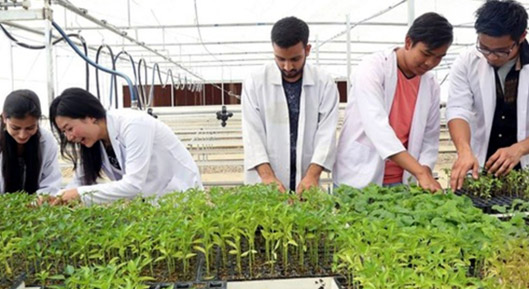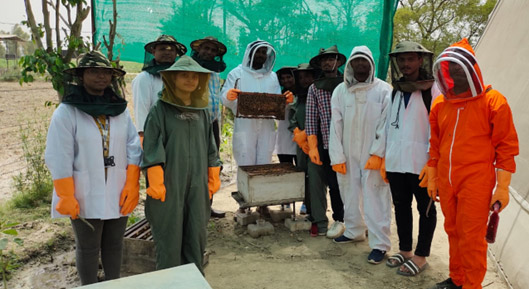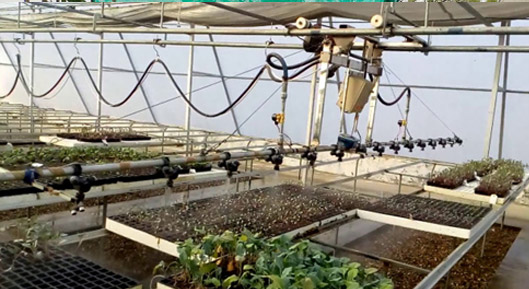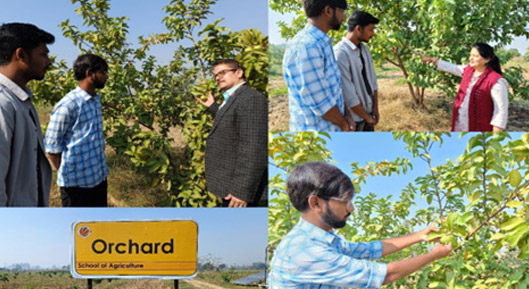
Introduction
LPU’s SDG 15 initiatives align with its vision of being a sustainable and environmentally conscious university, recognizing that the health of ecosystems and biodiversity is fundamental to human well-being. The university’s holistic approach includes afforestation campaigns, biodiversity conservation projects, awareness-raising programs, research on environmental sustainability, and partnerships with local and global organizations. By integrating these initiatives into the university’s academic and extracurricular framework, LPU aims to instill a deep sense of environmental responsibility in its students, making them proactive contributors to global ecological balance.
Academic Initiatives
LPU runs various undergraduate and postgraduate programmes in the field of Science, Agriculture, and Technology. LPU offers Undergraduate programmes like B.Sc. in agriculture, food technology and Zoology etc. whereas postgraduate programmes M.Sc. in Entomology, Genetics and Plant Breeding, Plant Pathology, Soil Science etc.
Research Initiatives
Lovely Professional University, a forward-thinking institution, has undertaken a comprehensive approach to advancing the United Nations' Sustainable Development Goal (SDG) 15, "Life on Land," by integrating innovative technological solutions. A key focus is on addressing the issue of pesticide-contaminated soils, which is crucial for preserving terrestrial ecosystems. The university's involvement in soil remediation methods plays a pivotal role in restoring soil health, preventing further land degradation, and promoting the sustainable use of land for agriculture. This aligns with SDG 15’s objective of safeguarding and revitalizing life on land.
Collaborations
Lovely Professional University (LPU) actively engages in collaborations with various local and national organizations to foster educational growth, research innovation, and community development. These partnerships are instrumental in addressing pressing societal challenges and enhancing the quality of education and research. University has collaborated with the local, national and international organizations to maintain shared land ecosystems through partnerships. LPU has collaborated with The Research Institute for Humanity and Nature (RIHN) under the Umbrella of National Institute for the Humanities, Tokyo, Japan to carry research in this field.
Guidelines and framework
Ensuring that food on campus is sustainably farmed typically involves a multi-faceted approach that includes various stakeholders such as the university administration, local vendors & suppliers and students. LPU therefore committed to improving the wellbeing of all students through ensuring the availability of affordable, nutritious food on campus whilst minimizing the environmental impacts of its production and consumption. To ensure sustainably farmed food on campus, LPU have dedicated guidelines.
Apart from this, LPU have guidelines aiming on identifying, monitoring and protecting IUCN red listed species. IUCN red list species data is collected to inform and catalyse action for biodiversity conservation which gives conservation status of species around the world.
In furtherance to this, LPU also have dedicated guidelines to reduce the impact of alien species on campus to maintain and conserve ecosystem.
Future Plans
- LPU plans to intensify its reforestation efforts, aiming to plant an additional 20,000 trees by 2025.
- Further investment will be made in research projects related to biodiversity, aiming for sustainable solutions that can benefit local communities and ecosystems.
- The university will expand partnerships with environmental organizations to strengthen its impact on land conservation and biodiversity preservation.
Conclusion
LPU’s commitment to SDG 15 reflects its dedication to sustainable land use and biodiversity protection. By engaging students, faculty, and the broader community, the university plays a vital role in preserving ecosystems and combating the challenges of deforestation and biodiversity loss. The activities undertaken in the 2022-23 academic year mark a significant contribution to global efforts toward achieving life on land sustainability.







